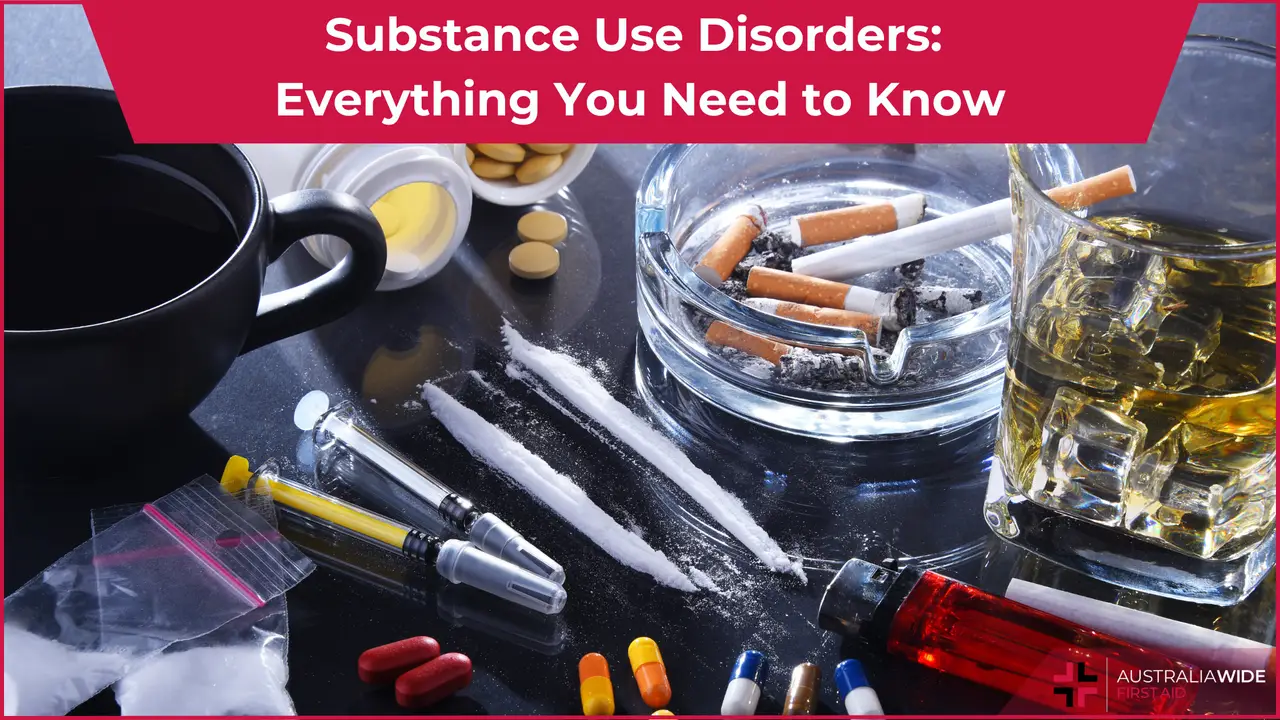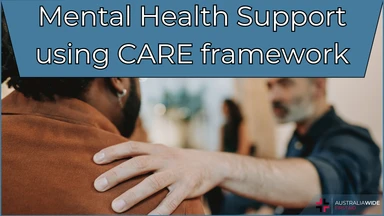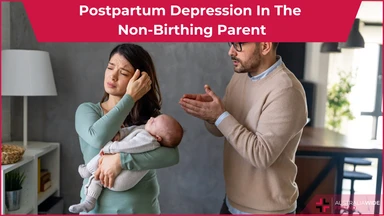Substance Use Disorders: Everything You Need to Know


Substance use disorders are a set of complex mental health issues that affect millions of people worldwide.
An SUD can have a devastating impact on all aspects of your life, but with the right approach and treatment, you can still recover and live a normal, healthy life.
In this article, we’ll cover everything you need to know about substance use disorders, from their causes to when to seek professional help.
Substance use disorder or SUD is a complex mental health condition where the patient loses control over their ability to stop using a substance despite obvious harmful consequences. It involves the use of legal as well as illegal substances, including:
All of these substances have one thing in common: They activate your brain’s reward system.
However, the likelihood of a substance leading to an SUD depends on several factors, including how fast it’s taken (Orally, inhaling, or injecting) and how fast it acts. Based on the number of symptoms displayed, SUDs can be characterized as mild, moderate, and severe.

The potential causes of substance use disorders are many. Your environment is one of the most important ones. Peer pressure, societal norms, and access to substances may also lead to excessive use of a substance.
Moreover, people with other mental health disorders may turn to long-term substance use as a way to cope with their symptoms.
Common conditions that may contribute to the development of SUDs are:
Studies have also shown genetics to be a cause of SUDs. This means if a first-degree relative (Parent or sibling) has an SUD, there’s a chance you’ll develop it too.
In addition to that, adverse childhood experiences (ACEs) can also lead to substance use disorder, including:
Common signs and symptoms of substance use disorders are:
A psychiatrist, mental health professional, or your family doctor can diagnose SUDs. The procedure involves a thorough evaluation of the patient’s medical history and behaviours.
It’s important to note that you need to have at least two symptoms over the course of 12 months in order to be diagnosed with an SUD.
The treatment options for SUDs are highly individualized. This means everyone needs a personalized plan depending on the root cause and medical history.
SUDs are often accompanied by another mental health condition, so the doctor may create a treatment plan addressing both issues.
Some common treatment options for SUDs are:
The goal of detoxification is to rid the body of the substance. This is achieved by simply discontinuing its use.
Depending on the intensity of the SUD, you may have to reduce the intake gradually to minimize withdrawal symptoms.
Cognitive therapy is another effective method of treatment for SUDs. Your doctor may also prescribe medication alongside therapy if needed.
Lastly, some SUDs are treated by changing the brain chemistry through medication.

Prevention is always better than treatment. If your doctor has prescribed you a medicine, always stick to the instructions. Plus, difficult times can make an individual turn to substance abuse. It could be a loss of a job, divorce, death of a close one, or any personal loss.
If you’re in distress, turn to healthy coping mechanisms like medication, exercise, working on a new project, learning a skill, and taking on a hobby. Plus, you can always talk to a mental health specialist and get an action plan.
If you’re taking a prescription medicine, and you feel you’re developing a dependence on it, it’s time you talk to your doctor. You need professional help if you’re having a hard time resisting the urge to take a drug.
You May Also Like: Food Choices that Support Mental Health
Substance abuse disorders can affect all aspects of your life. But, with the right approach, it’s more than possible to overcome this mental health condition. An SUD is a mental health condition where the urge to take a substance gets too strong. The condition is characterized as mild, moderate, and severe based on the number of symptoms. Addiction is the severest form of SUD.
Some common reasons for developing SUDs are your environment, social pressures, and genetics.
If you feel you’re developing a dependence on a substance or even a prescribed medicine, seek professional help.
Your doctor may take your medical history and perform an evaluation to determine the cause and propose a treatment plan accordingly.
You May Also Like: How to Ask for Mental Health Help
What are the Types of Substance Use Disorder?
Substance use disorders involve excessive use of prescription drugs, nicotine, alcohol, and other illicit substances. The disorder leads to problems in your social, professional, and personal life.
What is the Difference Between Substance Use Disorder and Addiction?
SUDs are classified based on the number of symptoms, ranging from mild to moderate to severe. Addiction is the most severe form of substance use disorder. It’s a condition that develops as a result of continued misuse of a substance or substances.
What Do Substance Use Disorders Depend On?
There can be several causes of an SUD, including environmental stressors, social pressures, psychiatric problems, and more. A certified mental health professional can tell you the cause of your substance use disorder.
Can Addiction Be Genetic?
Your genetic makeup is one of the potential causes of addiction, the severest form of SUD. In fact, you’re almost 50% more likely to develop addiction if your direct relative has it.

February 18, 2025
Mental health can be influenced by every aspect of our lives, and the weather is no exception. In places closer to the equator with humid environments, like Darwin here in Australia, the onset of monsoon season can see people suffer from a tropical seasonal affective disorder known as ‘mango madness’.

January 16, 2025
Mental health crises can occur unexpectedly, and knowing how to respond effectively can make a significant difference. The CARE framework is an easy-to-remember guide for offering support during a mental health crisis. It is also applicable if you think you might be seeing signs and symptoms of low mental health in a loved one, friend, or colleague.

June 3, 2024
New parents, both birthing and non-birthing, can develop postpartum depression. Birthing parents are easily recognized as being at risk for postpartum depression; however, it is important to acknowledge that non-birthing parents are equally susceptible to experiencing postpartum depression.